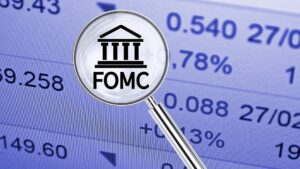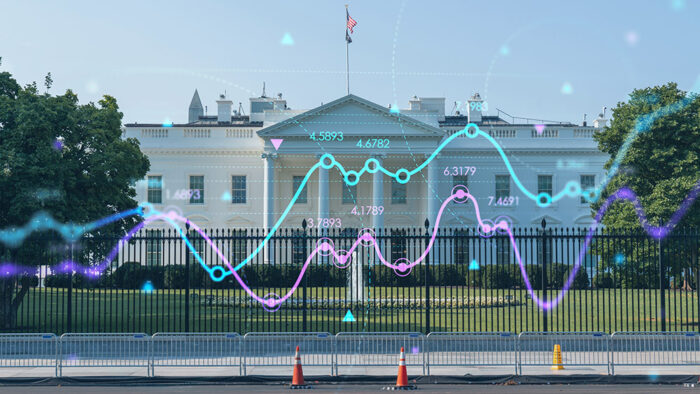This week promises to be an informative one for those who are trying to determine the economic health of the American consumer. Considering that consumer spending represents about 2/3 of the US economy, it is hardly a frivolous concern. This morning, the U.S. Census Bureau released their monthly Retail Sales report for July shortly after Home Depot (HD) announced its second quarter earnings. All came in above expectations. Ironically, though, the healthy reports seem to be weighing on stocks this morning.
In theory, solid consumer spending should be a good thing. As we noted, it is nearly impossible for the US economy to growth without participation from ordinary citizens. It’s relatively simple: when people have jobs, they can spend money. An unemployment rate of 3.5% means that the overwhelming majority of people who want jobs have one. A persistently low unemployment rate combined with wage growth (+0.4% in July) mean that people are not necessarily ready to cut back their purchases. We have been concerned that higher utility bills for a large percentage of Americans would impede their ability to spend money at stores, but today’s numbers show those worries to be premature at best, or unfounded at worst.
Today’s declines are another affirmation that US traders are first and foremost liquidity junkies. Solid retail sales, predicated on a solid employment, give the Federal Reserve little reason to consider rate cuts in the near-term. Instead, reports like today’s give more ammunition to central bankers who already seem inclined – at least rhetorically – to keep interest rates at current levels and to keep the concept of further rate hikes on the table. Expectations for a hike at the November FOMC meeting have been creeping up to around 40%, and today’s numbers do little to change that probability.
Economic data in the UK added to the concerns that a key central bank would remain hawkish. Average weekly hourly earnings rose by 8.2% in June, well above an already robust 7.4% expectation. Revisions were also higher. Although the UK’s unemployment rate rose to 4.2% from an expected 4.0% (which was also last month’s number), these numbers should do nothing to push the Bank of England (BOE) into a more accommodative stance.
Another liquidity culprit is the Peoples Bank of China (PBOC). We noted yesterday that US traders appeared to be looking at the economic woes in China less as a source of risk than as a potential spur for stimulus. Guess what: the PBOC unexpectedly cut rates by 15 basis points this morning, reducing the rate on its one-year medium lending facility (MLF) from 2.65% to 2.5%. That affected about $55 billion worth of loans. Yet that was not enough to excite those who had hoped for something even more aggressive. The PBOC tends to move incrementally and deliberately, which is at odds with traders who want their liquidity to come aggressively and quickly.
HD has flipped between gains and losses this morning and is roughly unchanged as I write this. As with many other stocks this earnings season, their EPS handily beat expectations ($4.65 vs. $4.45) but other measures were more sobering. Sales, gross margins, and net income all declined versus last year’s results. As we have noted previously, it’s better when growth stocks actually grow. It’s not clear that HD is truly a growth stock, but with a PEG ratio of about 39 (!), there are aggressive expectations built into the stock price.
Among the other retailers reporting this week, Wal-Mart (WMT), on Thursday, should be the most important. Not only is it the largest, but WMT is also trading around all-time highs. Many investors are betting on the idea that higher-end consumers will be “trading down” to WMT from department stores or Target (TGT). We’ll hear what TGT has to say tomorrow. But unlike WMT, TGT is nowhere near an all-time high. The latter’s performance should raise concerns that WMT could fall into the all-to-familiar recent pattern of beating its EPS but meandering or even selling off if other metrics disappoint.
Join The Conversation
If you have a general question, it may already be covered in our FAQs. If you have an account-specific question or concern, please reach out to Client Services.
Leave a Reply
Disclosure: Interactive Brokers
The analysis in this material is provided for information only and is not and should not be construed as an offer to sell or the solicitation of an offer to buy any security. To the extent that this material discusses general market activity, industry or sector trends or other broad-based economic or political conditions, it should not be construed as research or investment advice. To the extent that it includes references to specific securities, commodities, currencies, or other instruments, those references do not constitute a recommendation by IBKR to buy, sell or hold such investments. This material does not and is not intended to take into account the particular financial conditions, investment objectives or requirements of individual customers. Before acting on this material, you should consider whether it is suitable for your particular circumstances and, as necessary, seek professional advice.
The views and opinions expressed herein are those of the author and do not necessarily reflect the views of Interactive Brokers, its affiliates, or its employees.































Fails to impute the velocity multiple in the GDP, or the negative effect of trade deficit on both velocity and liquidity within the consumer market…
I’m needing a broker
Thank you for expressing interest, Adrian!
We are one of the premier securities firms, with over $12.7 billion in equity capital as of June 30, 2023. In our broker-dealer agency business, we provide direct access (“online”) trade execution and clearing services to institutional and professional traders for a wide variety of electronically traded products including stocks, options, futures, currencies, bonds, gold, and funds worldwide.
IBKR is regulated by the SEC, FINRA, NYSE, FCA and other regulatory agencies. To learn more about us, please visit http://spr.ly/AboutIBKR
Our product offerings: http://spr.ly/IBKR_ProductOverview
Application requirements: http://spr.ly/IBKR_ApplicationReqs
To open a trading account today, please use http://spr.ly/OpenAccountfromIBKRCampus
a 15 bps rate cut by the PBoC is going to suddenly render all those Chinese property developers solvent once more?
Methinks not – not even if the PBoC were to cut rates to zero.
You need to get off the central bank obsession ride and step back.
Only in a world where the federal statistics are believed accurate can the blinded consider the unemployment rate 3.8%. Please see John Williams shadowstats.com for an eye opener.